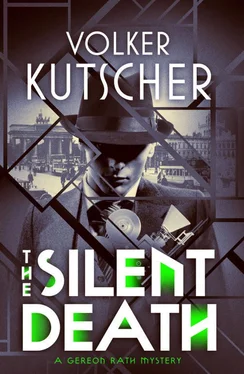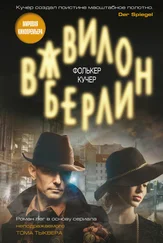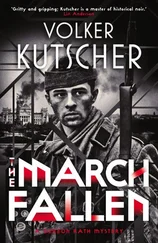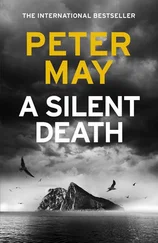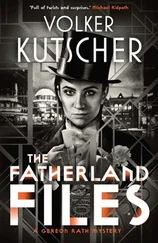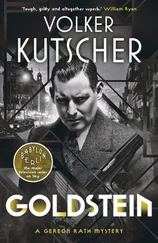‘Don’t,’ she said, sighing softly. He took her chin in his hands and looked at her. Her eyes were closed, her lips slightly open. Rath closed his eyes too and, just as his lips brushed hers, Kirie started barking. They had to lock her out again, but Kirie gave only a brief protest bark before falling silent.
Rath let Charly use the bathroom first, and drank another glass of wine to the gentle sounds of Louis Armstrong’s Black and Blue. In the middle of the piece, he nodded off, waking with a start when he heard Charly shout, ‘Bathroom’s free!’
He took a final drink, turned the record player off and went into the bathroom. She was already asleep when he returned to the bedroom. The way she lay… her profile on the pillow, the outline of her body as it gently rose and fell under the sheets. His intentions were thoroughly dishonourable when he crawled into bed beside her, but he was much too tired. Inhaling the scent of her warm body, he understood just how much it aroused him before falling instantly asleep.
Monday 10th March 1930
The face of a dead woman gazed out at him, larger than life. Rath instinctively applied the brakes and Kirie slid from the passenger seat. A taxi beeped and overtook. Liebesgewitter , it said under the face, behind which a huge flash of lightning split the sky in two. The great Betty Winter’s final film. In cinemas soon.
The billboard was impossible to miss. It spanned the whole width of a scaffold on Moritzplatz. Rath pulled over to look at the gigantic advertisement in all its glory. Had Bellmann gone completely mad, or simply been very shrewd and unscrupulous? The Winter team had been far too fixated on Krempin and completely ignored the producer. Why hadn’t Gräf listened to him? It had been clear from the start that Bellmann was making capital from his star’s death.
On the way to Alex he passed two more giant billboards, from which Betty Winter gazed longingly into the morning.
He was raring to go, a feeling that the spring-like weather only served to intensify. He hadn’t slept so well in a long time. Unfortunately, Charly was no longer in bed when he awoke. It was the sound of her closing the front door that roused him. Her scent lingered on the pillows. He saw that she had fed the dog, brewed coffee and left a note, which he stuck in his jacket.
I did warn you, sleepyhead: I have to leave early.
Hope we see each other soon. C.
Even the note smelled of her, which was why he had taken it with him. Climbing the stairs in the Castle he greeted everyone with a smile, but no doubt it was due to Kirie, who was pulling on her lead, that he met such friendly faces in return.
Erika Voss already knew who they had found yesterday. ‘You poor thing,’ she said, bending over towards Kirie. ‘Now you don’t have a mistress!’
‘Is it only dogs we’re saying hello to these days?’ Rath asked.
‘Forgive me, Inspector, but… the poor animal! Who’s going to look after her now?’
‘We are,’ Rath said. ‘That is, for the moment you are. Can you fetch a bowl of water, and perhaps you could take her for a little walk? She needs exercise.’
‘Of course, Inspector. Poor Kirie. You don’t even realise you’re an orphan.’
Kirie was in high spirits and glad of the water, and Rath knew she was in good hands with his secretary. He closed the door to look through the call logs from Saturday afternoon. There wasn’t much. The last person to have seen Jeanette Fastré alive was her caretaker. She seemed to have lived quite a secluded life, unusual for an actress. At least the call logs clarified the mystery of her name: she was called Vanhaelen, but had taken her mother’s maiden name for the stage.
Before he went to briefing, Rath made a detour to the passport office, and quickly found what he was looking for. Gertie’s name was Gertrud. Gertrud Hagedorn. There were no other Gertie Hagedorns, at least no other women by that name. The address was close to Stettiner Bahnhof as well: Bernauer Strasse 110. It had to be Anton Schmieder’s girlfriend. Rath made a note of the address.
When he entered the small conference room, Gennat was already sitting on the podium studying various files. ‘Morning, Superintendent,’ he said.
Gennat responded with a grunt, and continued reading. Rath looked for a free seat as more and more homicide detectives poured into the room. Finally Böhm arrived and, right behind him, arm still in a sling, Frank Brenner.
Just you wait, Rath thought, I haven’t finished with you.
Brenner cast him a hostile glance as he sat down. Lange was the last to appear, taking his seat next to Rath. The voices in the room died only as Böhm approached the lectern.
‘Dear colleagues,’ he began, ‘before we make a start, allow me to welcome back Superintendent Gennat. He will be taking charge of Homicide again as of today.’
That was the best news Böhm had announced for a long time. Gennat stood up, and the officers drummed respectfully on the table tops and chairs.
‘Good morning, gentlemen,’ Buddha said. ‘It’s good to be back.’ He cleared his throat. ‘I’ve already seen some of you in Weissensee, yesterday evening. It’s quite something to be greeted by a corpse, but we’ll come to that later. I’ll familiarise myself with all ongoing homicide investigations as quickly as possible. In the meantime, DCI Böhm, please continue as if I weren’t here.’
‘It’s not so easy, Sir.’
Buddha, who really was hard to ignore, took as little offence at the friendly laughter Böhm’s words provoked as at the words themselves. He listened as the DCI provided a summary of the preceding weeks, from the Winter and Franck cases to Krempin’s spectacular death. In the process it became clear that Böhm was treating Krempin’s fall as suicide as much for its public effect as anything else. The press were more restrained when it came to suicide, as long as they didn’t know who had died. So, Böhm also considered foul play to be a possibility. Interesting. Next he showed them the work of the sketch artist: a grim-looking face.
‘This man was seen at the Funkturm,’ he explained. ‘He was one of the first to appear by the corpse, along with a journalist…’ Böhm looked inside his notebook. ‘…Berthold Weinert. The curious thing is that a number of people saw him go up the Funkturm afterwards. Curious, but perhaps there’s a simple explanation. Unfortunately, we haven’t been able to identify the man. This Weinert didn’t know him either.’
‘He looks like Inspector Rath,’ someone said, and everyone laughed. A few people turned to face Rath, who joined in with the laughter.
‘I don’t think it’s so funny!’ Lange said, in a loud, firm voice. ‘I need to say something here. I find it more sad than funny that every portrait drawn by this sketch artist resembles one of our colleagues. We engaged the man to draw the wanted poster for the stranger in Wilmersdorf, in the Franck case, and the result was a picture that my mother could have hung in her parlour, so closely did it resemble me. These sketches are of limited use. We should leave the man to work as a court sketch artist, rather than consulting him again. The alternative would be to arrest myself and Herr Rath as prime suspects in the two homicide cases.’
‘Hmm,’ Gennat said, ‘perhaps you are right, but that’s down to the artist and not the method. In principle, I believe that a wanted sketch will meet with more response than a personal description, but in this case the debate is futile. If we want to keep the matter discreet we cannot issue a description, whether sketched or written. Carry on, Böhm.’
‘Since Herr Lange already has the floor,’ Böhm said, ‘perhaps he can report on what he and Herr Rath learned about Jeanette Fastré when she was still a missing person case.’
Читать дальше
